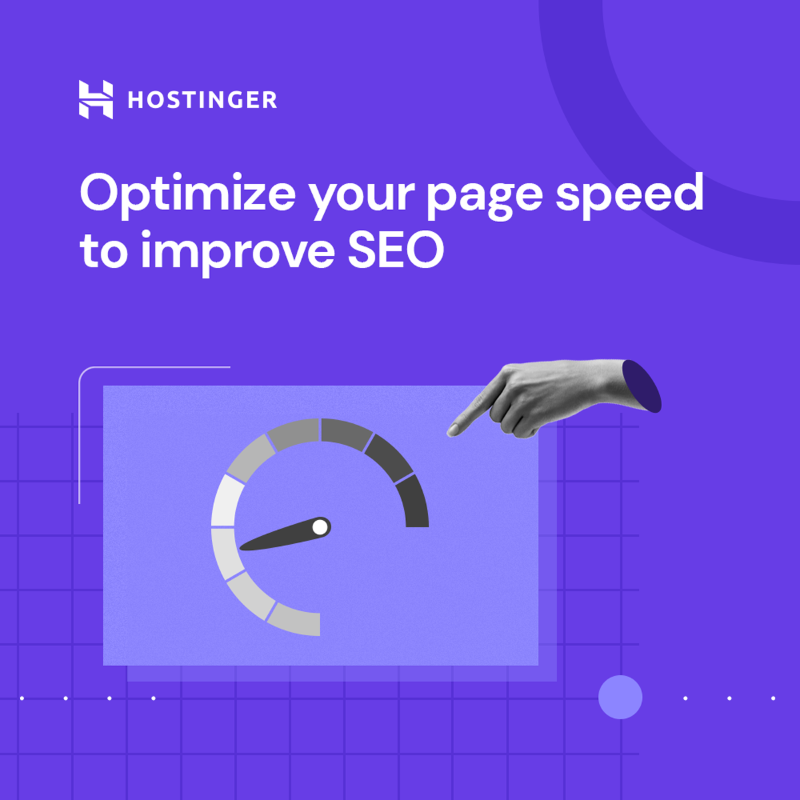Are you ready to establish an online presence for your business or personal venture? Setting up a website can be an exciting and fulfilling endeavour. In this comprehensive guide, we will walk you through the process of creating a website using Hostinger, a reliable web hosting provider. From choosing a domain name to launching your website, we’ll cover everything you need to know. So, let’s get started!

Table of Contents
Setting up a website requires careful planning and execution. In this article, we will guide you through each step, ensuring you have a solid foundation for your online presence. We will explore topics such as choosing a reliable web hosting provider, selecting a domain name, configuring DNS settings, creating a hosting account, managing your hosting account, setting up email accounts, installing a content management system, designing your website, optimizing it for SEO, adding essential website features, testing and launching your website, securing it, and monitoring and maintaining it. Let’s delve into each of these areas in detail.
Choosing a Reliable Web Hosting Provider
The success of your website largely depends on the web hosting provider you choose. Hostinger is a reputable and affordable hosting provider that offers a range of plans to suit different needs. We will discuss the key factors to consider when selecting a hosting provider and explain why Hostinger stands out as an excellent choice.
Selecting a Domain Name
Your domain name is your online identity, so it’s important to choose a memorable and relevant one. We will provide tips and guidelines for selecting an appropriate domain name and walk you through the process of registering a domain with Hostinger.




Configuring DNS Settings
Configuring Domain Name System (DNS) settings correctly is crucial for your website to function properly. We will explain what DNS is, why it’s important, and guide you through the process of configuring DNS settings on Hostinger.
Creating a Hosting Account
To get started with Hostinger, you need to create a hosting account. We will demonstrate the step-by-step process of setting up your hosting account and explain the various options available to you.
Managing Your Hosting Account
Once your hosting account is set up, you need to familiarize yourself with the hosting control panel and learn how to manage your account effectively. We will provide an overview of Hostinger’s control panel and guide you through its essential features.
Setting Up Email Accounts
Having a professional email address with your domain name adds credibility to your website. We will show you how to create personalized email accounts using Hostinger’s email hosting features.
Installing a Content Management System
A content management system (CMS) allows you to easily create and manage the content on your website. We will introduce popular CMS options and guide you through the process of installing one on your Hostinger hosting account.
Designing Your Website
The design of your website plays a crucial role in attracting and engaging visitors. We will provide tips and best practices for designing a visually appealing and user-friendly website using Hostinger’s website builder and other design tools.
Optimizing Your Website for SEO
Search engine optimization (SEO) is essential for improving your website’s visibility in search engine results. We will explain the fundamental principles of SEO and guide you through the process of optimizing your website using Hostinger’s SEO tools.
Adding Essential Website Features
To enhance the functionality of your website, you’ll want to incorporate essential features such as contact forms, social media integration, and e-commerce capabilities. We will show you how to add these features to your website using Hostinger’s tools and plugins.
Testing and Launching Your Website
Before making your website live, it’s important to thoroughly test its functionality and performance. We will provide a checklist of essential tests to conduct and guide you through the process of launching your website successfully.
Securing Your Website
Website security is paramount to protect your data and visitors’ information. We will discuss the importance of website security and provide steps to secure your website on Hostinger, including SSL certificate installation and regular backups.
Monitoring and Maintaining Your Website
Once your website is up and running, you need to continuously monitor its performance and address any issues promptly. We will outline the key aspects of website maintenance and provide tips for ensuring optimal performance.
Scaling Your Website
As your website grows, you may need to scale up your hosting resources to accommodate increased traffic and demand. We will discuss different scaling options and guide you through the process of upgrading your hosting plan on Hostinger.
FAQs
Can I use Hostinger for e-commerce websites? Yes, Hostinger provides various e-commerce features and integrations, making it suitable for setting up an online store.
Is it possible to transfer an existing website to Hostinger?
Absolutely! Hostinger offers website migration services and provides assistance in transferring your website from another hosting provider.
Do I need technical skills to set up a website on Hostinger?
No, Hostinger’s user-friendly interface and intuitive tools make it easy for beginners to create and manage their websites without extensive technical knowledge.
Can I upgrade my hosting plan later as my website grows?
Yes, Hostinger allows you to upgrade your hosting plan effortlessly as your website expands and requires more resources.
Is Hostinger reliable and secure?
Hostinger has a solid reputation for reliability and security. They employ robust security measures and provide regular backups to safeguard your website’s data.





